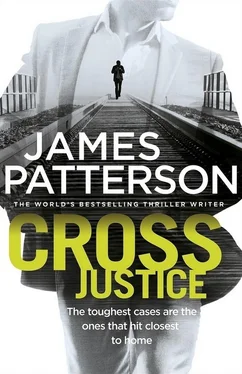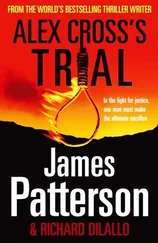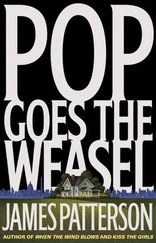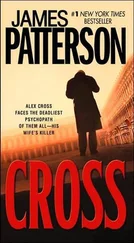“You like him?”
Johnson smiled. “Like? I don’t know yet. But I admire him. Drummond’s the real deal in my book.”
“Good enough for me,” I said.
“Paul Brown?”
“Correct.”
“And thirty-three years ago,” Johnson said, studying his screen and typing. “We’ll go plus or minus a year just to be safe. We have a date of birth?”
I told him my father’s birthday.
Johnson hit Enter. Almost immediately, he shook his head. “No match.”
“Leave the birthday blank,” I said, figuring that my father must have been smart enough to leave everything about his old identity behind.
The detective played with it and hit Enter again. “There you go. Three of them.”
“Three?” I said, getting out of my chair to look at the screen.
Sure enough, three men named Paul Brown had died in Florida around thirty-three years ago.
“Can you pull up the death certificates?” I asked.
Just then, Sergeant Drummond exited his office carrying several large black binders. “Any luck?”
“We got three Paul Browns,” Johnson said. “Is there a way to access the death certificates from vital statistics, Sarge?”
“Miami, what are you, thirty years younger than me? You’re supposed to be the technologically advanced part of the team.”
The detective shook his head. “I don’t—”
“Try clicking on the name,” Drummond said.
“Oh,” Johnson said, and he clicked the first one.
The screen jumped to a PDF image of a death certificate for Paul L. Brown of Pensacola, age twenty-two. Cause of death: blunt-force trauma.
“Too young,” I said. “Try the next one.”
Johnson clicked on it. A new death certificate popped up for Paul Brown of Fort Lauderdale, age seventy-nine. Cause of death: stroke.
“Too old,” I said, now desperately wanting to find the answer behind door number three.
The third certificate fit the profile. Paul Brown, of Pahokee, Florida, age thirty-two, indigent. Cause of death: self-inflicted gunshot wound.
“That’s him,” I said, with a sinking feeling. “Where’s Pahokee?”
Drummond said, “Fifteen miles north of Belle Glade.”
“It’s got to be him, then,” I said, studying the certificate, oddly detached. “Which means the church is probably there. Says here the body was released to Belcher Brothers Funeral Home for interment.”
“Interment?” Johnson said. “Most indigents are cremated in Florida.”
“Not this time, apparently,” I said.
The sergeant said, “I know the guys who own that funeral home. The Belchers. They run an ambulance service there too. When I was on patrol in the west part of the county, they’d show up at all the fatalities. I’ll make a call.”
“I’d appreciate that, Sergeant Drummond.”
Drummond nodded, gestured to the books. “There’s the murders we’re working on. We’d appreciate the third eyeball if you have the time.”
The sergeant returned to his office. I started scanning the files on the deaths of the socialites Lisa Martin and Ruth Abrams and their maid Francie Letourneau. Two hours later, I was almost finished and flipping my way through the appendix of reports on the cleaning woman when Drummond returned.
“Took a bit to get in touch with him, but Ramon Belcher is working night duty and he said he’d go through the files for you,” the sergeant said.
“Thanks,” I said.
Johnson returned to the cubicle with more coffee. I waved it off, said, “Any more of that without something to eat and I’ll get an ulcer.”
Drummond said, “You find anything in there?”
“I saw a few things.”
“What do you like to eat?”
“Anything. Seafood.”
The sergeant nodded. “Got just the place down in Lake Worth. Johnson, are you in? We can talk about our case over dinner.”
“Absolutely,” Johnson said. “My wife’s pregnant. Let me just call her.”
“Pregnant?” Drummond said. “You didn’t tell me that.”
“Still early, Sarge,” Johnson said, digging out his phone and walking away. “End of the first trimester. Twins.”
The sergeant frowned, looked at me. “I would have liked to have learned that sooner.”
“It matter?” I asked.
“Course it matters,” Drummond grumbled. “As it stands now, I will do everything I can to keep Detective Johnson from screwing himself into harm’s way and depriving those babies of their father.”
“You’re a man of hidden virtues, Sergeant,” I said.
He looked at me with that slack, scarred face, said, “That’s not virtue, just common sense. It’s just me and my wife, and she’s got a good job that pays better than mine. But Johnson’s got three people depending on him now. Do the math. Tell me where my priorities should be when the shit hits the fan.”
Crusty as he was, Sergeant Drummond was beginning to grow on me.
Pleasant Lake, North Carolina
Pinkie Parks gestured through the windshield to a gravel lane ahead that cut off the highway and dropped steeply to the lake. “There it is.”
Bree pulled the blue Ford Taurus she’d rented that morning over onto the shoulder and put it in park.
“Not much to see from here,” Pinkie said. “You’d want to be in the woods.”
Bree picked up a pair of binoculars and said, “Then let’s go into the woods.”
Once Pinkie learned that Alex had gone to Florida and that Bree was focusing on Marvin Bell and Finn Davis, he’d insisted on helping her. But now he raised his eyebrow, said, “You looking to kick a hornet’s nest?”
She frowned. “These woods are known for hornets?”
“These woods are known for Marvin Bell and Finn Davis, which is the same thing, way I see it.”
“Suit yourself,” Bree said, opening the door. “I’ll be back.”
Pinkie groaned but got out as well. It was hazy, hot, and humid. They waited until traffic died and then cut down the steep embankment and entered a thorny raspberry thicket. Pinkie led the way, clawing through it until they emerged into piney woods where crickets were sawing.
Below them and out several hundred yards, Bree could see the clean waters of Pleasant Lake. She heard outboard motors and kids laughing.
Pinkie went down a game path that led through the trees growing on the slope above the lake’s eastern shore. Bree followed, her brain going back to everything they’d learned that morning about Marvin Bell and Finn Davis.
After renting the car, she and Pinkie had gone to the Stark County Recorder’s Office and gotten online with the North Carolina secretary of state’s office, looking into the two men’s business interests. Together and individually, Bell and Davis owned five businesses in and around Starksville: a liquor store, a dry-cleaning shop, two automated car washes, and a pawn-and-loan operation.
Pinkie smartly noted that all five businesses would generate and bring in a lot of cash. Convenient if you’re also involved in some sort of illegal cash-intensive business.
But Bree had zero jurisdiction here. She couldn’t get to databases that might give her a look at the businesses’ bank accounts.
On a whim, Bree accessed public databases in Nevada and Delaware because both states had incorporation and tax laws that made them attractive for people interested in creating shell companies. Though there was nothing in Nevada, she was pleased to find that Marvin Bell and Finn Davis were listed as registered agents of six Delaware companies, three apiece. All six corporations had been organized for the purpose of “real estate acquisition and development.”
Which, in a roundabout way, led Bree to look up their real estate holdings in Stark County. To her and Pinkie’s surprise, neither man appeared to own any property in the area.
Читать дальше












